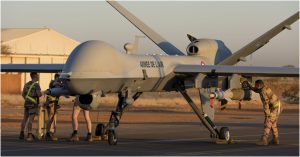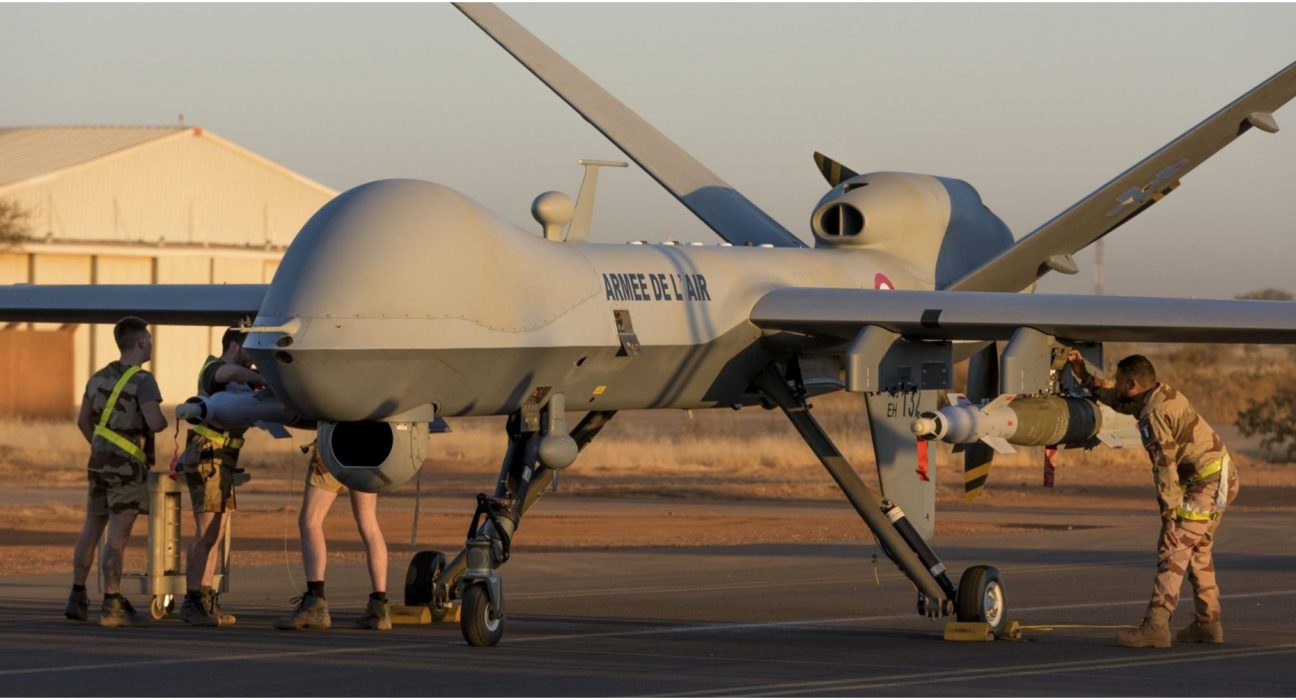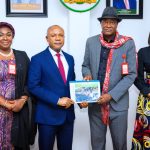
Aviation experts and other stakeholders have called on the federal government to fully utilize the services of Unmanned Aerial Vehicle (drones) to effectively gather information through surveillance, improve security in Nigeria and save lives of the citizens.
The experts said that UAV can save lives by reducing the putting of military personnel in harm’s way, save cost of air operation by using the equipment instead of aircraft and also use it in reconnaissance, mapping of areas under threat and embark on search and rescue mission.
This was part of the deliberations at the fifth edition of the International Drone Technology Expo and Conference (Dronetecx 2025) that ended yesterday at the NIGAV Expo Centre, Murtala Muhammed Airport, Lagos.
The experts called on the government to harness drone technology for national development, youth empowerment and regulatory excellence.
Addressing participants at the event, Mr. Fortune Idu, Managing Director of the Dronetecx platform, stressed the growing relevance of Remotely Piloted Aircraft Systems (RPAS), especially for non-aviation sectors such as healthcare, agriculture, security, and disaster management.
Idu said, “This fast-growing industry opens immense opportunities for African youth. Drones are not just flying gadgets; they are economic tools that are creating jobs, enhancing efficiency, and improving lives across key sectors.
“Drone 101 is a public awareness initiative that equips SME operators and recreational users with essential safety knowledge,” Idu explained, adding; “It also aligns with the NCAA’s efforts to document, regulate, and standardise drone activity nationwide.”
This year’s edition of the conference focused on building awareness about safe and secure drone operations through a signature seminar series: “Drone 101: RPAS – What to Know.”
In his speech at the conference, the Registrar of the African Aviation and Aerospace University (AAAU), Mustapha Sheikh Abdullahi, pointed out the role of Science, Technology, Engineering and Mathematics (STEM) education in advancing drone careers and innovation.
“For Nigeria and Africa to lead in drone innovation, we must also focus on local development and manufacturing. It’s not enough to fly drones; we must also build them,” Idu said.
Also, the Nigerian Civil Aviation Authority (NCAA) said it is committed to ensuring drone operations in Nigeria are safe, legal, and properly regulated, even in the absence of globally certified drone aircraft.
Speaking at the event, NCAA’s Director, Aerodromes and Airspace Standards and Head, Flight Safety Group Mr. Godwin Balang, emphasized the authority’s proactive approach in addressing the unique regulatory challenges presented by unmanned aircraft systems.
He acknowledged that no drone in Nigeria currently meets the criteria for type certification, a reality that has forced the NCAA to chart its own path in crafting regulatory standards.
Balang said the absence of certified drones has necessitated the creation of bespoke frameworks tailored to the Nigerian context.
Recognizing the rapid growth of drone usage long before formal global regulations emerged, Mr. Balang noted that the NCAA began by issuing advisory circulars and has since advanced to implementing the Nigerian Civil Aviation Regulations (Nig. CARs) 2023, which specifically address drone operations.
He described the regulations as a strong starting point, likening them to the early aviation rules that eventually led to the development of modern aircraft.
Balang said NCAA is working to approve drone training centres under a revised framework.
“So, in another two months, you will be able to have a school that is approved but we won’t call it approved training organization not to confuse it with type certificated aircraft but it is going to have NCAA approval then we will have people that would be able to go there and it will also be an incentive for any other person that would want to come into this. We’re just finalizing the process,” he said.
Bakang said the training centre will play a pivotal role in building local capacity for drone operations and in line with efforts to improve access and compliance, the NCAA has also advanced work on its drone registration portal.
He disclosed that NCAA is collaborating with the Office of the National Security Adviser (ONSA) to resolve key security concerns, and the portal now reflects the official registration fee of just N5,000, contrary to public speculation about higher costs.
“The drone registration by the NCARs 2023, the schedule of fee is less than $5, it is $3, if I covert, it is going to be N5,000 as documented in the regulations and that is also one of the things we are fine tuning to the drone portal, so that the ability to make that payment can happen, it is only N5,000 except the regulations is changed, it is N5,000”.
According to him, licensing policies are also being refined, given the absence of certified drone models, warning that the NCAA will no longer issue traditional pilot licenses but will instead provide competency certificates aligned with operational realities.
NCAA said it doesn’t want burdensome documentation requirements and disclosed that regulations designed for traditional, certified aviation are not suitable for the open and specific categories where most drone operations fall, adding that the agency is moving toward risk-based frameworks like SORA (Specific Operations Risk Assessment), which allow for practical mitigation strategies tailored to each operation.
“Everything we’ve done is to simplify the process while maintaining safety and security. We are not here to complicate things; we are here to build a future where drones can be operated legally, safely, and efficiently in Nigeria,” Balang said.
However, THISDAY learnt that Nigeria has started embracing drones, realising its importance as equipment to be used to combat insecurity by enhancing surveillance, gathering intelligence, and supporting ground operations. This is because drones offer a unique perspective, allowing for real-time monitoring of borders, high-risk zones, and remote areas, which helps security forces identify threats and respond quickly.
Drones are used for surveillance and intelligence gathering because drones equipped with high-resolution cameras and sensors provide a bird’s-eye view, facilitating the detection of suspicious activities, identification of potential threats, and real-time intelligence gathering.
As stated earlier, drones can be used to patrol borders, helping to deter illegal crossings, prevent smuggling, and enhance security along vulnerable areas.
Also, UAVs provide air cover for ground troops, enabling them to manoeuvre with greater awareness and combat more effectively in challenging environments and they are also used to monitor the activities of insurgents and bandits, helping to locate them, track their movements, and support targeted operations.
They can also be used in disaster response, helping to assess damage, map affected areas, and coordinate relief efforts.
Drones can be used to monitor public areas, ensuring safety and security, and they can also be used to support citizen reporting of suspicious activities through mobile applications, fostering a sense of collective responsibility for security.
There are indications that gradually the use of drones is being embraced in Nigeria, but the fact that the federal government is yet to develop a policy on its usage and the fact that the Nigeria Civil Aviation Authority is yet to have regulatory directives on drone’s usage in Nigeria, confirms that the utilization of Unmanned Aerial Vehicle is being neglected in the country despite its importance.
In 2024, unmanned Aerial Vehicle industry was valued at $36.41, a burgeoning market that has great promise and which Nigeria should take advantage of now.
According to dronthusiast.com, the history of modern drone UAV technology improved throughout World War II and into the Cold War as well.
“It’s known that both the US and the USSR used unmanned drones to some extent to spy on each other during the Cold War, but the specifics are still classified and the leaked reports are often contradictory. What we do know is that modern drone warfare began in earnest in 1982, when Israel coordinated the use of battlefield UAVs alongside manned aircraft to wipe out the Syrian fleet with very minimal losses,” it stated.






